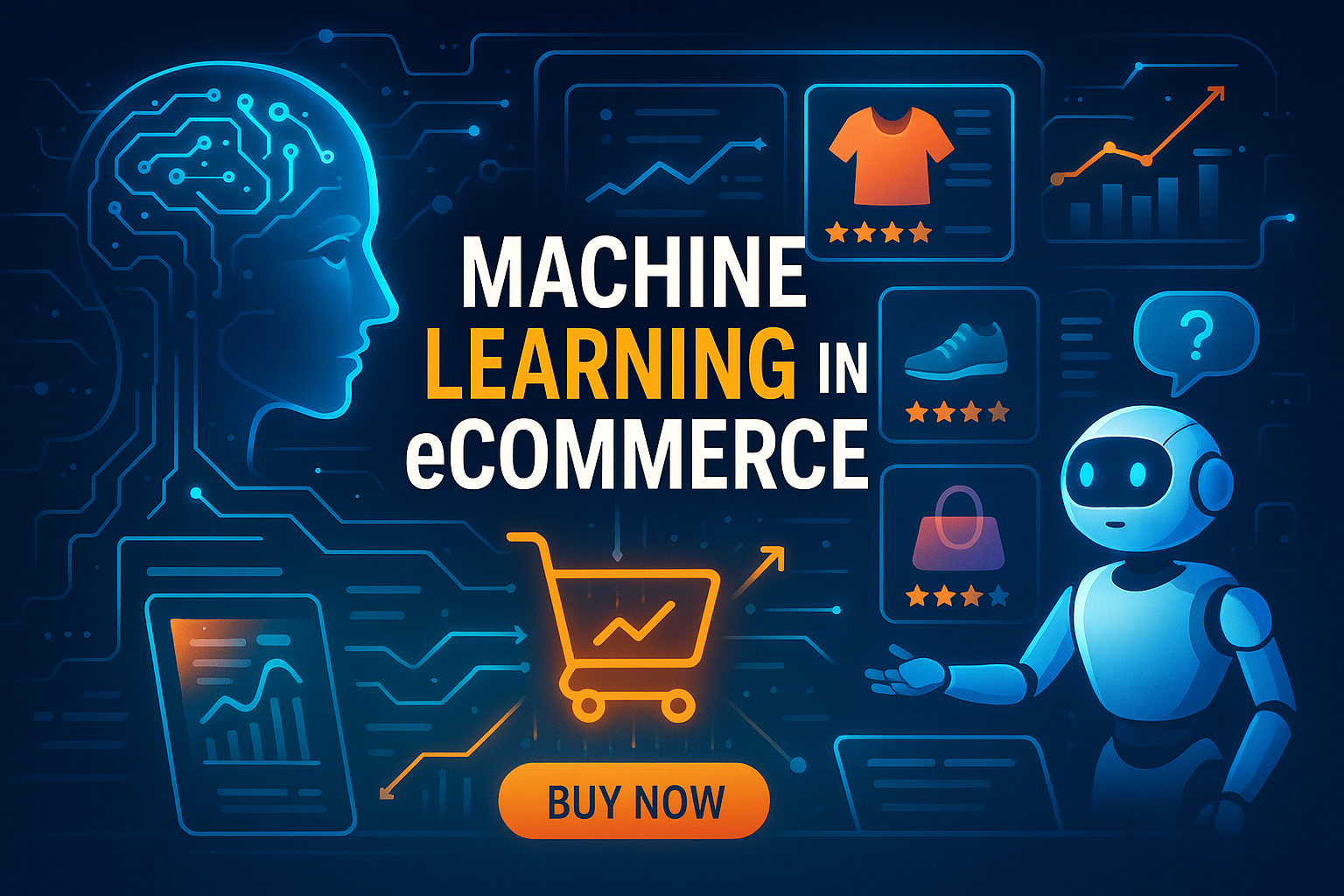Introduction
Machine Learning (ML) is revolutionizing the eCommerce landscape by enabling businesses to provide personalized experiences, optimize operations, and make data-driven decisions. By analyzing vast amounts of data, ML algorithms can uncover patterns and insights that drive customer engagement and increase sales.
Key Applications of Machine Learning in eCommerce
- Personalized Recommendations: ML algorithms analyze user behavior to suggest products that align with individual preferences, enhancing the shopping experience.
- Dynamic Pricing: Real-time data analysis allows for price adjustments based on demand, competition, and other market factors.
- Customer Segmentation: ML helps in grouping customers based on behavior and preferences, enabling targeted marketing strategies.
- Fraud Detection: By identifying unusual patterns, ML algorithms can detect and prevent fraudulent activities.
- Inventory Management: Predictive analytics assist in maintaining optimal inventory levels, reducing overstock and stockouts.
- Chatbots and Virtual Assistants: ML-powered chatbots provide instant customer support, improving service efficiency.
For a deeper understanding of AI applications in marketing, refer to our article on AI Marketing Strategies.
Mathematical Insight: Predictive Analytics in eCommerce
Predictive analytics in eCommerce often employs regression models to forecast customer behavior and sales trends. A common approach is the use of logistic regression for binary outcomes, such as purchase vs. no purchase. The logistic function is defined as:
\[ P(y=1|x) = \frac{1}{1 + e^{-(\beta_0 + \beta_1x_1 + \beta_2x_2 + \dots + \beta_nx_n)}} \]
Where:
- \( P(y=1|x) \): Probability of a positive outcome (e.g., purchase) given input features \( x \)
- \( \beta_0 \): Intercept term
- \( \beta_1, \beta_2, \dots, \beta_n \): Coefficients for each feature \( x_1, x_2, \dots, x_n \)
Understanding these models helps businesses predict customer actions and tailor strategies accordingly.
Real-World Applications
- Amazon: Utilizes ML for personalized product recommendations, dynamic pricing, and supply chain optimization.
- eBay: Employs ML to enhance the seller experience by simplifying the listing process through generative AI tools that auto-fill item descriptions and attributes using photos.
- Alibaba: Leverages ML for customer segmentation and personalized marketing campaigns.
Benefits of Implementing Machine Learning
- Enhanced Customer Experience: Personalized interactions increase customer satisfaction and loyalty.
- Operational Efficiency: Automation reduces manual tasks, allowing for faster and more accurate processes.
- Data-Driven Decisions: Analytics provide actionable insights for strategic planning.
- Competitive Advantage: Staying ahead with technology adoption positions businesses as industry leaders.
Future Trends in Machine Learning for eCommerce
- Voice Commerce: Integration of voice assistants for hands-free shopping experiences.
- Augmented Reality (AR): Allows customers to visualize products in their environment before purchasing.
- Blockchain Technology: Enhances transparency and security in transactions.
For insights into emerging technologies in eCommerce, consider reading this Forbes article.
Conclusion
Adopting Machine Learning strategies is essential for eCommerce businesses aiming to thrive in a competitive landscape. By embracing AI, automation, and data analytics, companies can deliver exceptional customer experiences, streamline operations, and achieve sustainable growth.
Explore our comprehensive guide on AI Certification for Marketing Experts to further enhance your understanding and skills in this domain.








